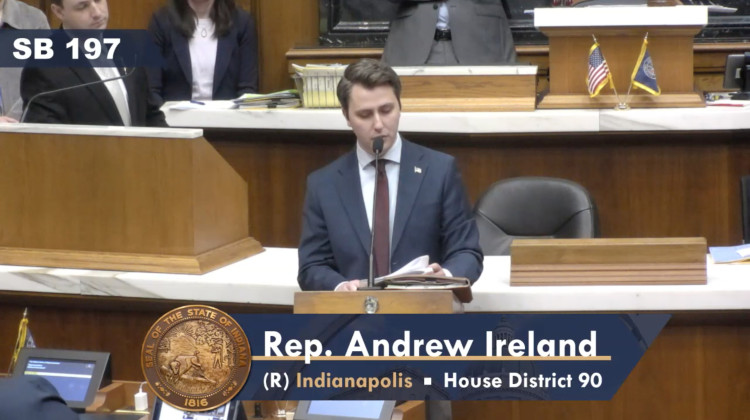
Indiana has a moratorium on utility shutoffs during winter months. Advocates say the state should have high heat moratoriums too.
"Thermostat" by midnightcomm is licensed under CC BY 2.0.Earlier this month, CenterPoint Energy halted utility shutoffs in Evansville citing temperatures above 100 degrees and the company's policy of halting disconnections “during extreme weather situations.”
Indiana, like many states, bans utility shutoffs for customers during the winter months.
According to the Low Income Home Energy Assistance Program (LIHEAP) website, Indiana’s policies ban shutoffs between December 1st and March 15th for customers who qualify for public assistance.
But, with regions of the state expected to double or even triple the number of high-heat days in a year, some advocates say the state should have a moratorium on utility disconnection during hotter months too.
Ben Inskeep is the Program Director with the Citizens Action Coalition. He said utility shutoffs pose a significant health risk in the summer.
“Particularly under climate change when we have these really high temperatures lasting for longer periods of time, you have evening temperatures not cooling down as much as they used to, that can be a big health risk to a lot of folks,” Inskeep said.
Across the country, only a handful of states have high-heat disconnect policies including Illinois, Wisconsin, and Minnesota. Many of those policies are specifically temperature, not date range. In Wisconsin, for example, the moratorium takes effect when the National Weather Service has issued a heat advisory.
Inskeep said the health risk of prolonged exposure to high temperatures is especially dangerous for vulnerable populations.
“How can we make sure the most vulnerable customers out there aren’t going to be under further strain from climate change?” he said.
9(MDAyMzk1MzA4MDE2MjY3OTY1MjM5ZDJjYQ000))
 DONATE
DONATE






 Support WFYI. We can't do it without you.
Support WFYI. We can't do it without you.